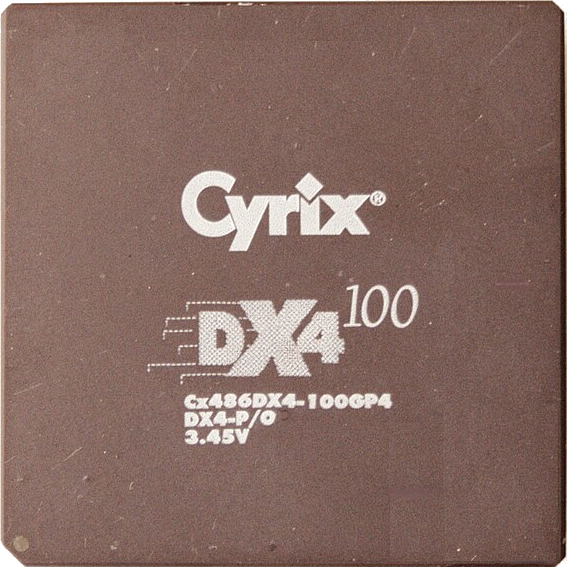These small little handy-dandy devices seem to get more and more popular. Anyone here chipped in for a JetKVM yet? Looks and sounds pretty solid. Are there a lot of you that have aquired a nanoKVM?
hmm they claim it’s open source but their repo:
This organization has no public repositories.I’d advise against preordering unless you understand and you’re ok with taking the leap of faith that is tied with preorders~
They state the code will be released after the first orders ship, which makes a certain kind of sense given this is a competitive space suddenly.
Though, I 10000% agree that there’s no reason to take a leap of faith when you can just wait like, uh, a month, and see what they do after release. It’s not like they won’t still be selling these or something.
Hm, good of you to point out. I hope and assume they will post the code for this as soon as they launch this.
People who received early units like reviewers already got access to all the repos, they said they’re preparing them for making them public and will do so before/just as first units start shipping
First project created, only want $50k, delivery is basically as soon as the project ends.
I would be surprised if the backers of this project receive anything.
While I have a personal general rule against backing electronics on Kickstarter and would likely wait for it to be available at retail, I wouldn’t necessarily immediately discount this one.
It’s probably worth noting - mentioned in Jeff Geerling’s video - they had a MOQ of 1500 on the metal case, which likely forced them to be significantly further through the process than a lot of Kickstarters are at launch.
In his article Jeff said:
They add a copper plating, and give it a polished gunmetal grey finish.
Apparently to do all that, they had to order a batch of 5,000 cases, which I hope means they also have a ton of these ready to go.
I’d be very surprised if this was some sort of sham. At least both Jeff Geerling and Raid Owl have posted about getting these; though like sent to them without them backing them directly.
I’m not saying it’s a scam necessarily, but the schedule and budget seem optimistic enough to make me question wether the folks running it have any prior experience with manufacturing.
BuildJet is a YCombinator backed startup with a ton of attention, and a million extra to burn on top of what investors have already given them. They would have to royally fuck this up at this point, most people would be so lucky to have the opportunity they have here.
Jeff Geerling and Craft Computing have recently reviewer these units on YouTube and they’re fairly optimistic about them.
No way it will cost $ 69.
See for example PiKVM prices.
It is based on completely different hardware. A Raspberry Pi CPU is much more expensive than the CPU that is used here.
NanoKVM is going for around $50
yeah, but it’ll be hard to make those Y Combinator vultures rich at that price
We really need to get past the 1080p barrier. AFAICS there is one economical KVM solution for that, and several costly enterprise kits. Surely the actual hardware cost/difference per-unit would be quite small now?
Why? Even 1080p is more than what is usually needed for such a KVM solution. It is not like this is meant for doing remote work on a computer or anything like that.
Because sometimes I would rather things be slow than blurry, and my workstation monitor is >1080p.
You aren’t supposed to do serious work over these things. They should be a last resort imo.
I backed so I’ll see what happens.
I Need a device like this that I can buy through an actual store, as I need to buy them for my office. Do you know any?
It does not even matter if it has ip connection, just usb is fine, but i need to be able to buy it from an “official” source.
Yes. I’m excited to try it out :)
OK, I’ve read the wiki entry but I still don’t understand what KVM is, or why it’s needed. The last time I visited a data center - every server rack came with a laptop-esque looking control unit. What problem does KVM comes to solve? What does this invention improve upon a traditional KVM?
This is not the invention of an IP KVM, those are old. This product just offers the functionality of an IP KVM for very little money.
It lets you remotely control a server as if you were sitting in front of a screen and keyboard directly attached to it.
Afaik this is for servers without a built-in KVM like e.g. self built servers or repurposed workstations.
How often are you people screwing things up so badly that your servers aren’t reachable over the network and require keyboard/monitor access? This is basically only ever once for me for the initial OS install, and even then that can be automated away if I had to do it more than once every couple years
Don’t have to screw anything up. I have a machine that has a weird stability issue that I haven’t tracked down - it seems to take out the PCIe bus, so the errors don’t get logged to disk or network - without my KVM I’d have to leave a monitor connected just for this edge case and be home to check on it
Power issues can cause problems that the hardware glitches into states it should not be. Changing something in the BIOS or updating it. Hardware defects. OS upgrade fails (Kernel bug causes the network driver to fail) Etc. Etc.
Those devices are not for the weekly “oh my setup failed” its for the once in 10 years “i am on vacation and the server is not reachable and for some reasons my system crashed and has not rebooted by its own”
And for below 100€ it’s a no-brainer.
If you work in dev/test/qa labs, there are a million reasons you’d need access to the BMC/KVM. It would be foolish to attempt things like firmware updates or testing the install of an upcoming release without it. Most modern BMC solutions also have a central management application that allows you to push firmware updates to all your hosts at once. And if you need to change properties like UEFI trusted certs, change boot from San parameters on the hba, or boot in legacy mode, you generally need “physical” access, at least the first time.
A decent KVM on an oob network can also remove the need to add jumphosts as an entry point to private testbeds. My job would be 10x as difficult without them.
This sort of device doesn’t have that level of feature set, but even so, it could be very useful where I work, especially as it can power cycle systems or automate button presses with add-ons.
For that one time when systemd-logind crashed on every boot on an unmodified CentOS install because of an OOM.









